These are the 7 biggest mistakes you can make when deciding where to put your TV, according to Feng Shui masters
Feng Shui TV placement is about rearranging and positioning this important object so that it balances positive and negative energies in the home

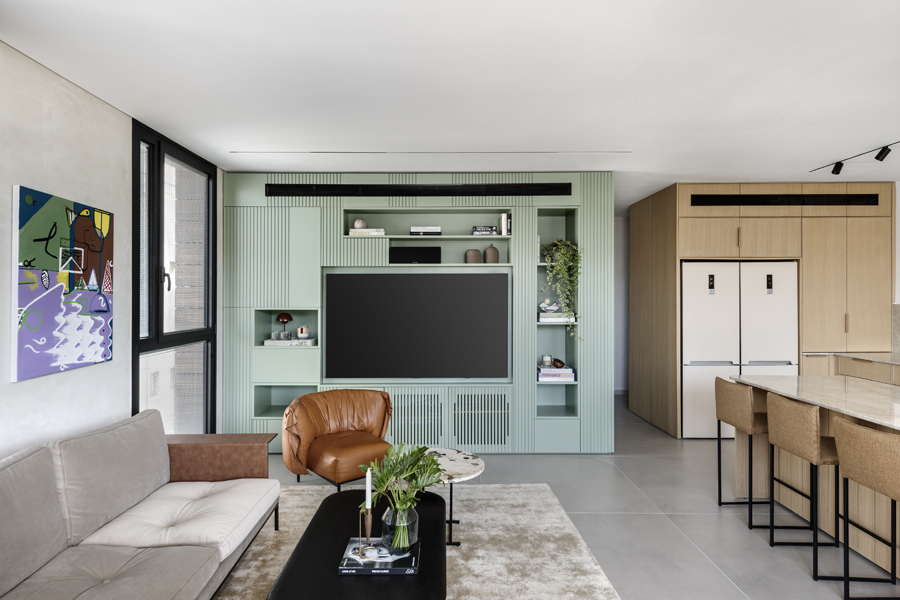
The Livingetc newsletters are your inside source for what’s shaping interiors now - and what’s next. Discover trend forecasts, smart style ideas, and curated shopping inspiration that brings design to life. Subscribe today and stay ahead of the curve.
You are now subscribed
Your newsletter sign-up was successful
If you follow the ancient Chinese traditional practice of Feng Shui, then you need to know the importance of Feng Shui TV placement. But is there a kernel of good spatial design to be found in these ideas, too? Feng Shui is a deep study into not just the placement of furniture and rearranging objects, but also balancing positive and negative energies.
After all, the TV and its placement in the home can have a big impact on your health and well-being. We spoke to masters of Feng Shui and interior designers to help us understand the right way to place a TV in the home.
Take a look at the following ideas that explain the mistakes you can make in positioning a TV when following Feng Shui principles.
The biggest Feng Shui TV placement mistakes to avoid
Largely, Feng Shui experts warn to be mindful of the impact of a TV in your daily life. Too much consumption could negatively impact your interactions with loved ones, after all, not to forget the blue light from TVs, which can cause eye fatigue.
'Feng Shui is about your relationship with your environment and your surroundings and, how this impacts your mood, mindset, and motivation,' says feng shui master, Jane Langof. 'The energy in your environment affects the way you think, feel, and act. And while TVs were not around 3000+ years ago when Feng Shui was first developed, their impact on your energy today is something that needs to be considered in modern times.'
But how should we position a TV with living room Feng Shui in mind?
1. Positioning it in the line of sight as you enter a room
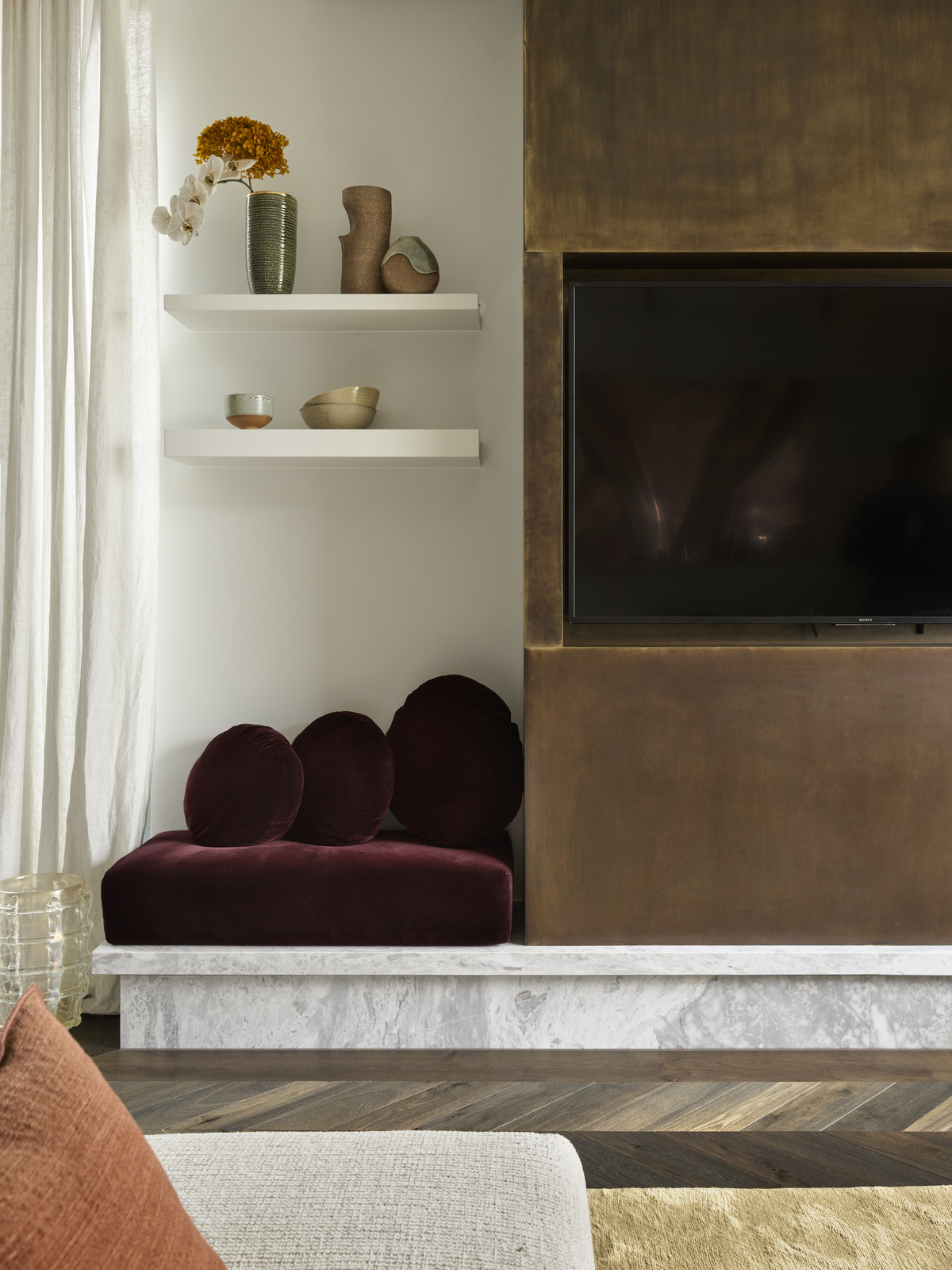
When it comes to living room TV position, consider placing the large gadget on a wall that doesn't immediately grab attention.
The Livingetc newsletters are your inside source for what’s shaping interiors now - and what’s next. Discover trend forecasts, smart style ideas, and curated shopping inspiration that brings design to life. Subscribe today and stay ahead of the curve.
'From a Feng Shui perspective, it's important to consider how the placement of the TV can affect your behavior,' says Jane. 'If the television is the first thing you see in a room, you’re more likely to take the path of least resistance and switch it on. You’re also less likely to engage in meaningful communication with your family. While televisions can be used for productive purposes like karaoke, exercise, watching documentaries, and family photo displays, they can also steal your attention and make you addicted. For this reason, it's important to be mindful of your viewing habits and consider limiting your exposure to the TV if it doesn't support your goals.'
'Ultimately, the ideal placement for your television will depend on your personal preferences and goals,' says Jane. 'As a Feng Shui practitioner, I recommend placing the TV on a wall that doesn't make it the first thing you see when you enter a room. I prefer to see beautiful artwork when first entering a room rather than a television.'
2. Not paying attention to the position of your seating
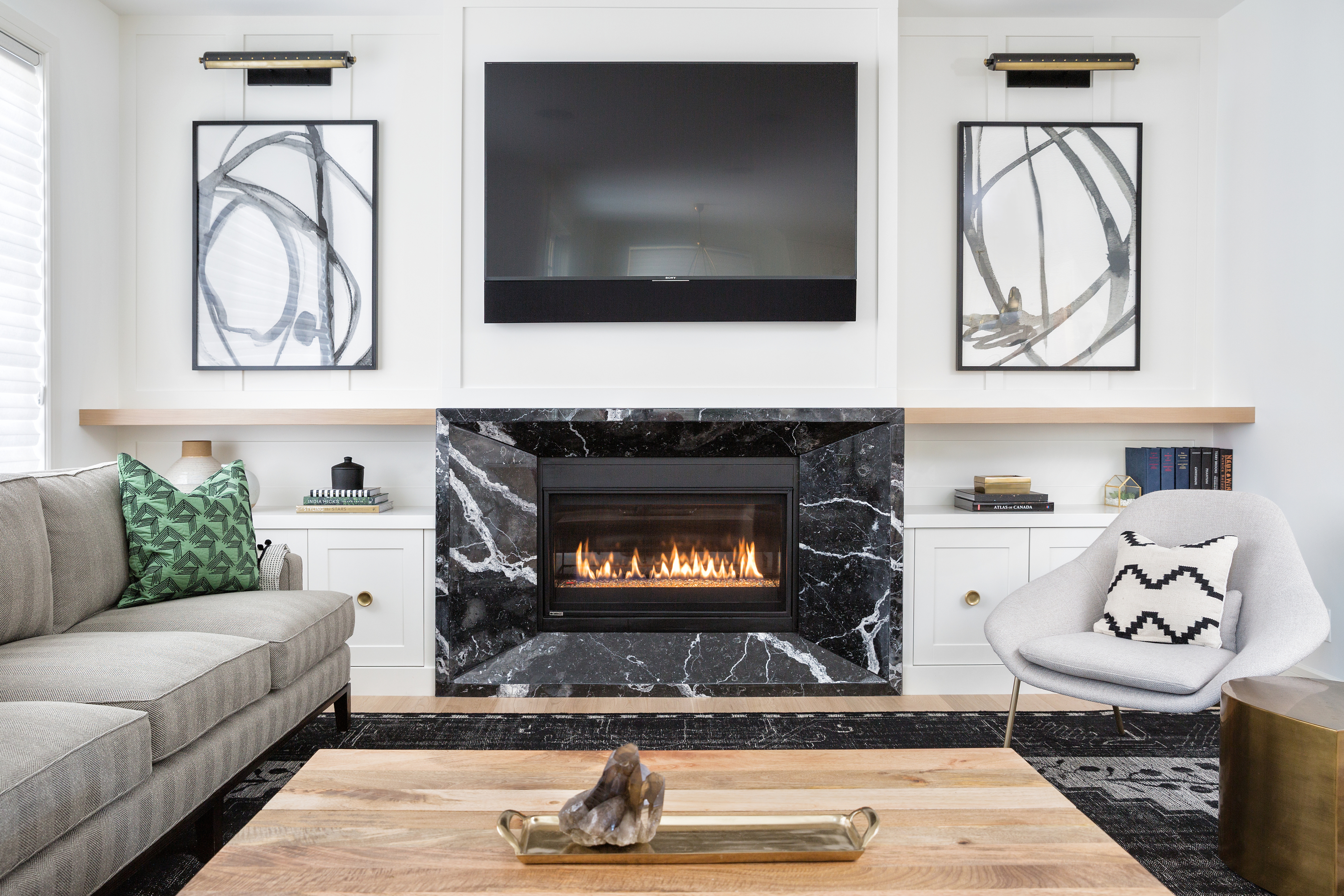
'Feng Shui, when it comes to the placement of TV is all about the chair/sofa or bed's position to the TV,' says Feng Shui consultant Anjie Cho. 'In that sense, the seater should be in the commanding position; i.e., the door should always be visible from where you're seated.'
If you're wondering how to design a modern living room with Feng Shui rules in mind, remember to hang the TV on the north side of the room; this is the area of positivity and it will bring you good luck in your career. If you're interested in fame, place the TV in the south of the living room.
3. Putting a TV in the kitchen
As per Feng Shui, a lot of what we think, talk about, or even watch has an impact on the food we're eating. Negative thoughts transfer into the food we prepare, thereby impacting us and our loved ones. Similarly, a quiet, positive space filled with soft music will put you in a good mood, and help you concentrate on what you're preparing.
If you're remodeling a kitchen, perhaps avoid putting a TV in there. 'I wouldn’t suggest placing a TV in the kitchen as it’s a distraction, and could cause accidents,' says Feng Shui expert Gary J. Hawkes. 'It’s much better to be conscious and have a positive intention to impart into the food.'
4. Or the bedroom
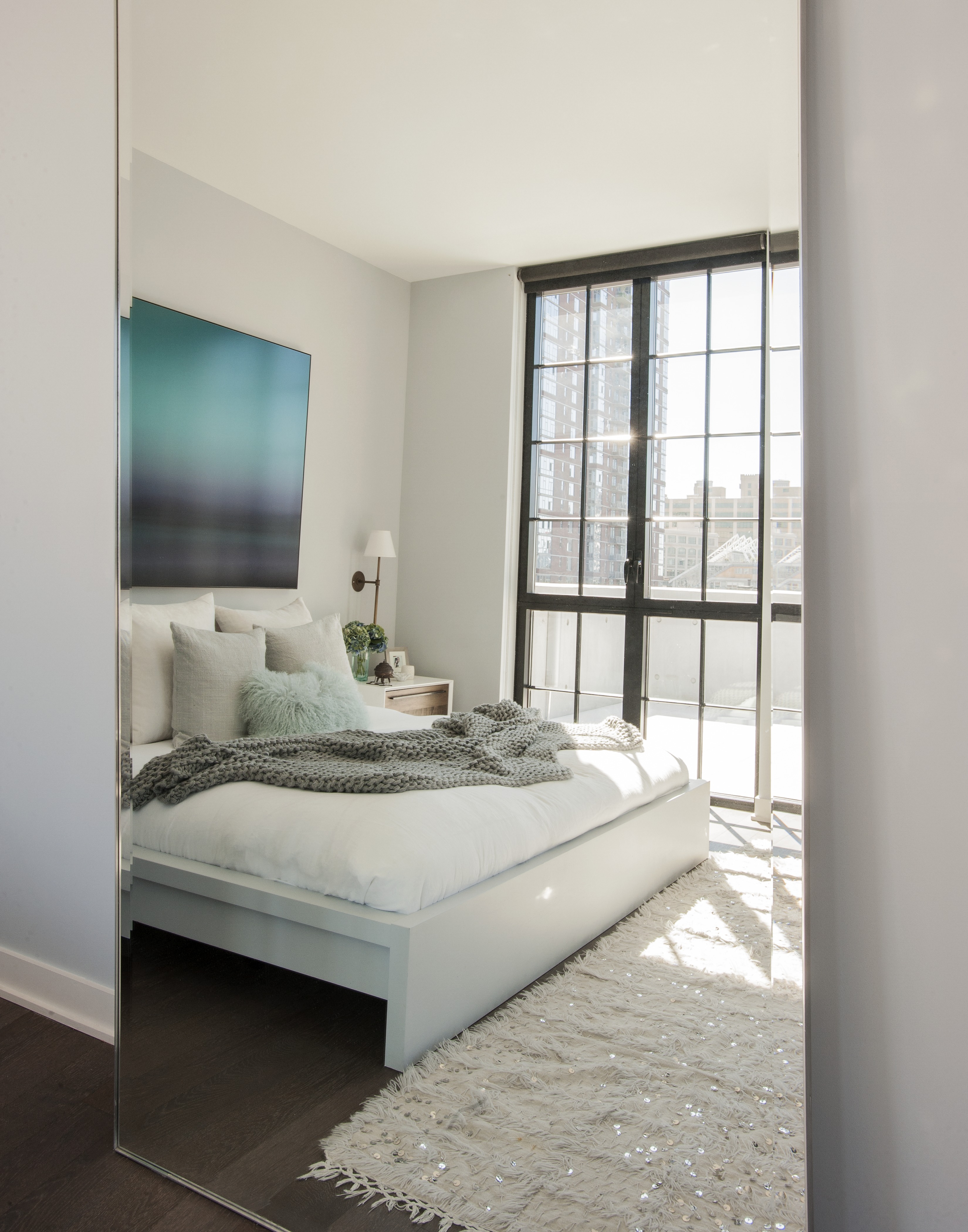
When it comes to bedroom TV ideas, Feng Shui experts unanimously advise against having one in this space.
'You should never have a TV in any bedroom because these spaces are for sleep and rest,' says Gary. 'The blue light emanating from the TV can be stimulating; as are the programs themselves. All screen time should cease at least half an hour before sleep. A TV also produces electro pollution which is detrimental to your health when experienced for 8 hours a day, every day.'
'TVs emit a very high output of electromagnetic energy fields (EMFs),' says Julia Sarasola, founder of Sarasola Interiors. 'For this reason, I recommend not setting them up in a room where someone sleeps, like a bedroom or on a wall in another room, that would place the TV directly behind your head or bed.'
'If you have trouble sleeping, you want to avoid using the TV in the bedroom,' says Anjie. 'If you need more healing or rest, it would be better to place the TV or devices outside the bedroom. If not, conceal it by placing it inside a cabinet or even placing a scarf over it, so it doesn't become the focus in the room.'
'In general, being mindful about what you consume, especially before sleeping, is a healthy practice as per Feng Shui,' says Julia. 'Most people don't realize it but programs that instill fear, anger, or despair transfer a certain vibrational energy that we end up carrying into our dream state. The last thing we want to do is create negative energy patterns in our subconscious. Try turning off the TV at least an hour before bed and set an intention for deep rest and rejuvenation.'
5. Including TVs in open plan spaces
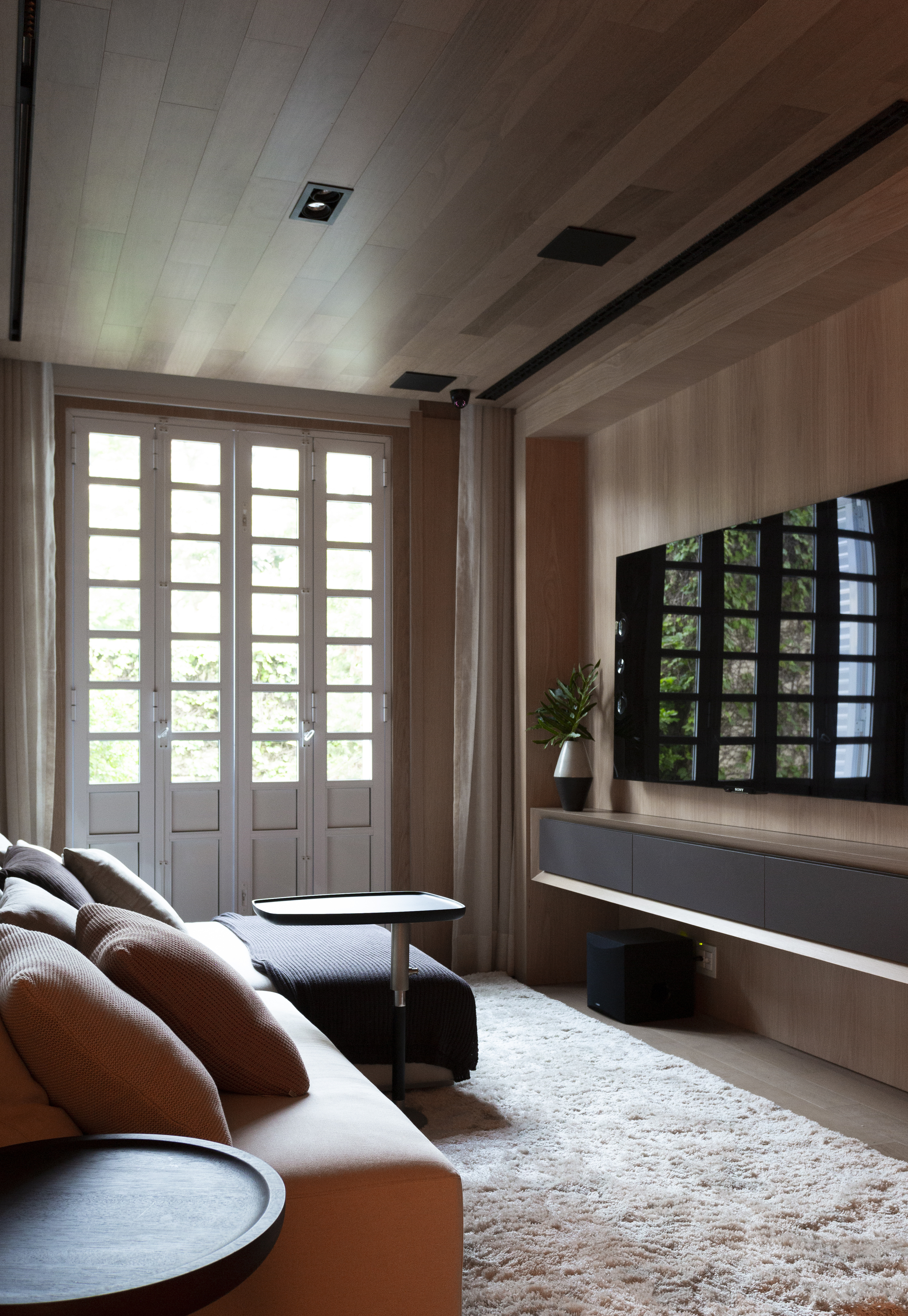
'Televisions can create negative energy if certain occupants of a home do not like the noise,' says Jane. 'For this reason, it's generally best to keep televisions out of bedrooms and consider placing them in rooms that can be enclosed rather than open-plan environments where noise reverberates through the whole house.'
This way, you do not allow the impact or pull of the TV to flow through the house, and allow your cozy living room to be a magnet for conversations and family time.
'If you're going to spend time watching television, it's important to consider the energy you consume from the content you're watching,' says Jane. 'If it's negative or unproductive, consider curating your viewing habits and putting the remote control away, unplugging it, or placing the TV behind closed doors.'
'Also consider placing televisions behind beautiful joinery or on a wall that does not make the TV the feature,' says Jane. 'Placing the television on a platform or a wall is ideal to raise it to eye height while you are seated opposite. Many people make the mistake of mounting a television at the same height as artwork (eye height when standing), and from my experience, I have seen this causing neck strain in my clients.'
6. Ignoring your home's energy map
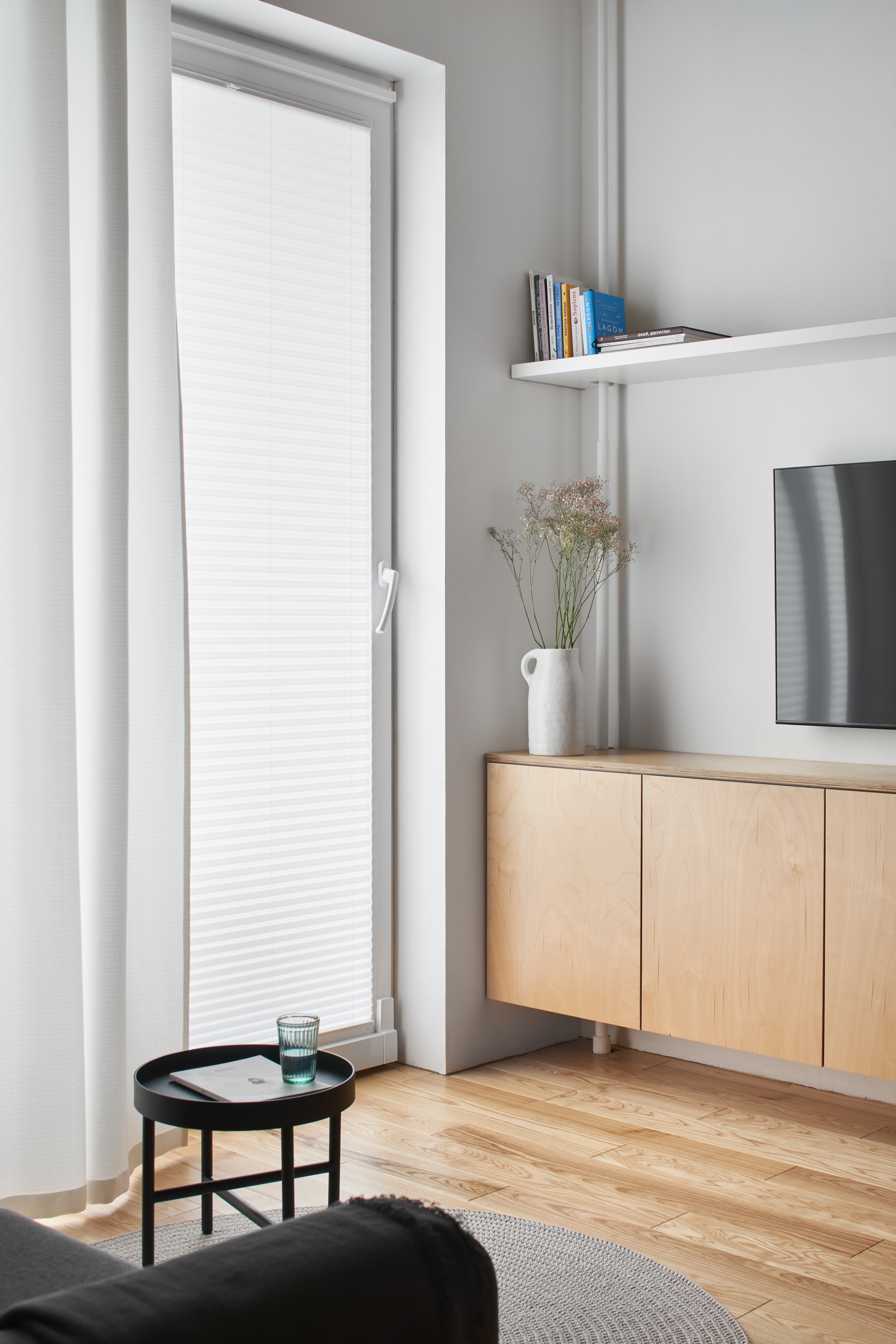
While a big modern living room trend is to embrace more technology, with large, flat-screen TVs, home theaters, and more, as per Feng Shui, their need and use should be curbed. Or they should be placed in the least negative spots in the house.
'In terms of facing directions of televisions, the answer is: it depends,' says Jane. 'This is because every home is unique and there is no one size fits all guideline. I advise my clients to avoid placing their television in an area with negative energy to avoid activation of toxic influences like sickness and arguments. Every home has a unique energy map based on the orientation, floor plan, and age of the home, and to find out about yours, contact a master on the most appropriate placement to suit your circumstances.'
'Overall, I'd say be mindful of your viewing habits and the placement of your TV, so you can create a more supportive environment that aligns with your goals and promotes positive energy,' says Jane. 'Keep in mind the impact of electronic devices on your well-being, and consider placing them in areas with positive energy flow to support a more peaceful and balanced life.'
7. Not keeping it far enough away from seating
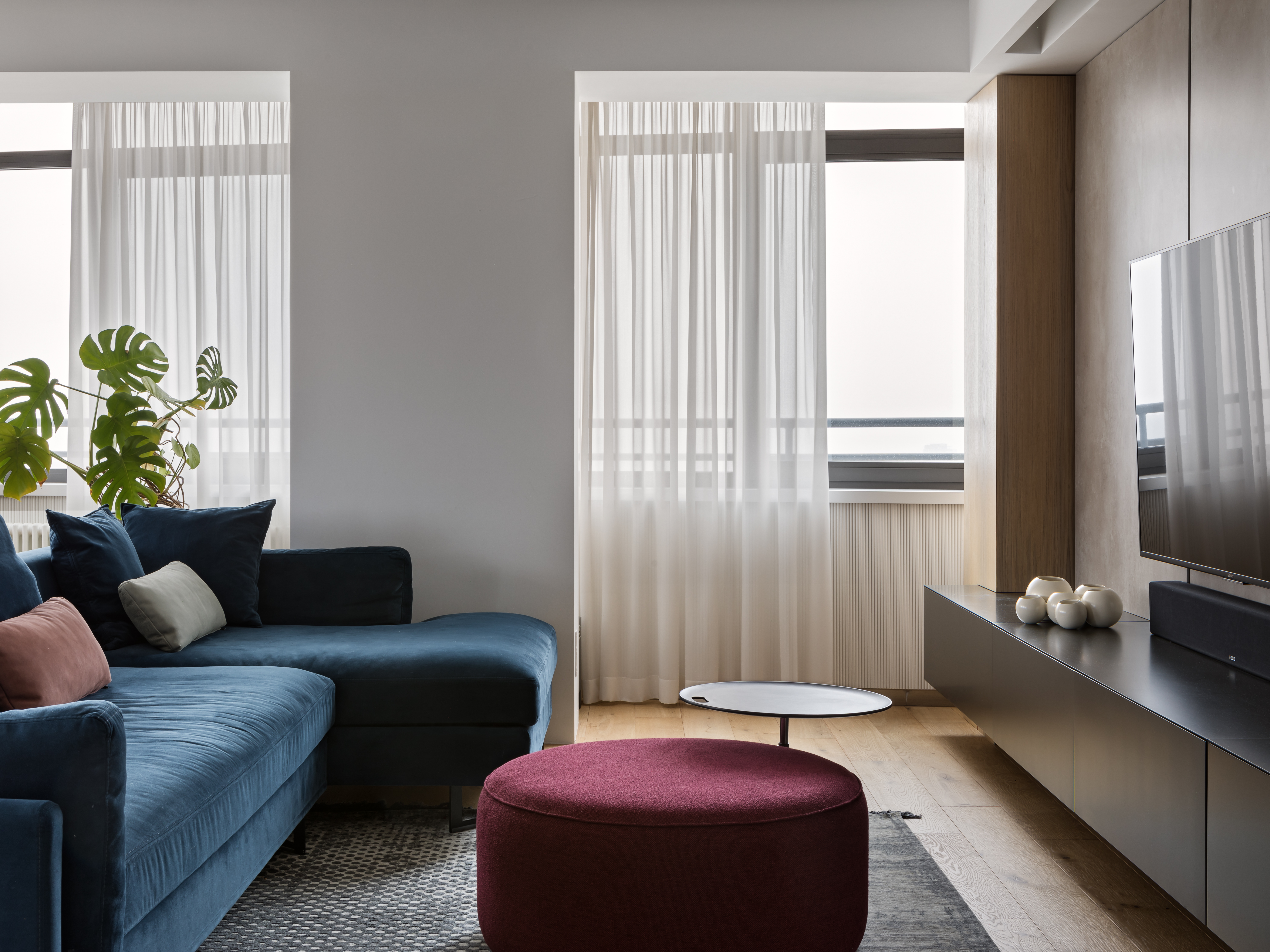
An important point to keep in mind is also the height and distance of where you place the TV. Whether you have a living room, bedroom, or garden TV, you want to ensure it is placed such that it doesn't cause eye strain.
'Remember to place the TV at least 8-10 feet away from your body and unplug it when it's not in use,' says Julia. 'Studies have shown that frequent exposure to EMFs not only weakens our immune system but also contributes to an elevated rate of illness and cancer.'
Plus, as per Feng Shui, a TV largely does not contribute majorly to your well-being.

Aditi Sharma Maheshwari started her career at The Address (The Times of India), a tabloid on interiors and art. She wrote profiles of Indian artists, designers, and architects, and covered inspiring houses and commercial properties. After four years, she moved to ELLE DECOR as a senior features writer, where she contributed to the magazine and website, and also worked alongside the events team on India Design ID — the brand’s 10-day, annual design show. She wrote across topics: from designer interviews, and house tours, to new product launches, shopping pages, and reviews. After three years, she was hired as the senior editor at Houzz. The website content focused on practical advice on decorating the home and making design feel more approachable. She created fresh series on budget buys, design hacks, and DIYs, all backed with expert advice. Equipped with sizable knowledge of the industry and with a good network, she moved to Architectural Digest (Conde Nast) as the digital editor. The publication's focus was on high-end design, and her content highlighted A-listers, starchitects, and high-concept products, all customized for an audience that loves and invests in luxury. After a two-year stint, she moved to the UK and was hired at Livingetc as a design editor. She now freelances for a variety of interiors publications.